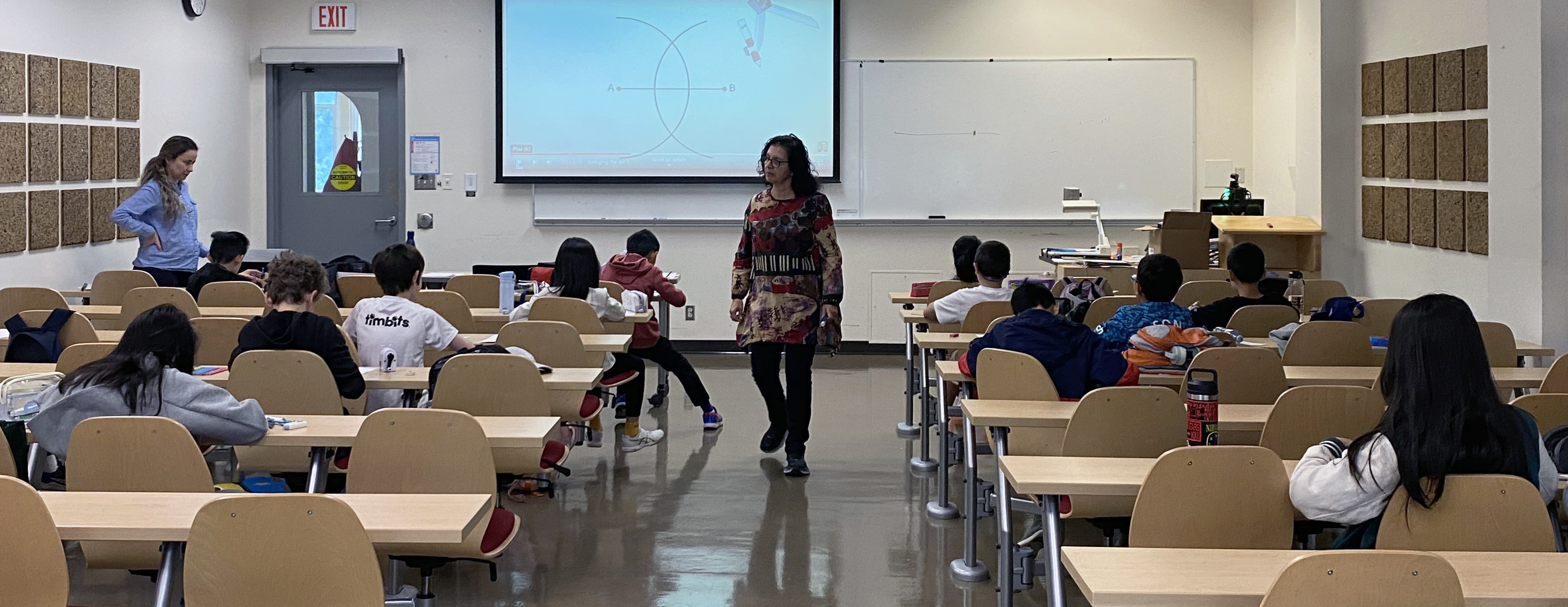Don’t say math is hard: how parents can help children succeed at math
August 29, 2024

August 29, 2024

Students are heading back to school and university next week but many may be feeling nervous about tackling mathematics, thanks to its fearsome reputation.
Parents can help by not vocally dreading the subject and instead helping their kids have fun with math, according to Dr. Melania Alvarez (she/her), outreach and education coordinator at the Pacific Institute for the Mathematical Sciences and the UBC department of mathematics, and Dr. Lindsey Daniels (she/her), assistant professor of teaching in the department of mathematics.
We asked them how to set children up for success.
MA: Most children like math when they are very young, but as they hear from their teachers, parents and people around them that math is hard or difficult, a fear of math or anxiety sets in.
It’s important for parents to instead talk about the importance of math and how fun and interesting it can be.
LD: One of the issues for students leaving high school and entering university is uncertainty. At university, classes are much bigger and the pace is often faster.
MA: Parents can expose their children to fun and interesting math activities at all ages. For instance, did you know you can earn a living doing origami for NASA?
There are a lot of games you can play, and they don’t have to cost money. For example, when you’re out driving, use the numbers on licence plates to get to a specific number. We’ve put together a resource with more of these sorts of games.
Lead by example and show an interest in math. When children see their parents reading, they read. Math is the same. Teach them how to think like a mathematician by asking them, how did you use math today?
LD: It’s important to be consistent. Math is like stacking LEGOs—it’s OK if there’s one missing brick when building a wall, but if there are multiple missing bricks, it will crumble. We want strong foundations before moving on to new concepts.
Be a cheerleader for your child: If they come home with a low test score, help them identify what topics they need to work on and a successful study strategy for moving forward. Everyone has gotten a bad grade—even those of us with PhDs in math! It’s an opportunity to identify where there’s a missing brick and plug that gap.
LD: Parents can support their kids in asking for help, whether that’s from the instructor, the teaching assistant or the math help centre on campus, including UBC’s centre. Offer to go with them, or to watch some YouTube videos like Numberphile and 3Brown1Blue and take notes together.
Encourage your child to set themselves up for success: They should attend class, take notes, go to office hours, find a study strategy that works for them and apply it consistently. This will look different for every student. It might take a term or two, so it’s best to start figuring this out early.
A great strategy is to ask them to teach the concept or terminology to you, because to coherently explain something, you have to really know it. Ask with enthusiasm to show you’re interested.
MA: Making mistakes is part of learning. Talk about the mistake and work on it together to find a way forward.
LD: It’s 100-per-cent OK to tell your kid, “I don’t know, but I’m going to start asking questions.”
Validate your child’s feeling: It’s OK that this is challenging. Offer to work through a problem together, or find an easier problem to tackle first. Write out questions together for their teacher. And ask about available resources at school you can look at together.
We honour xwməθkwəy̓ əm (Musqueam) on whose ancestral, unceded territory UBC Vancouver is situated. UBC Science is committed to building meaningful relationships with Indigenous peoples so we can advance Reconciliation and ensure traditional ways of knowing enrich our teaching and research.
Learn more: Musqueam First Nation